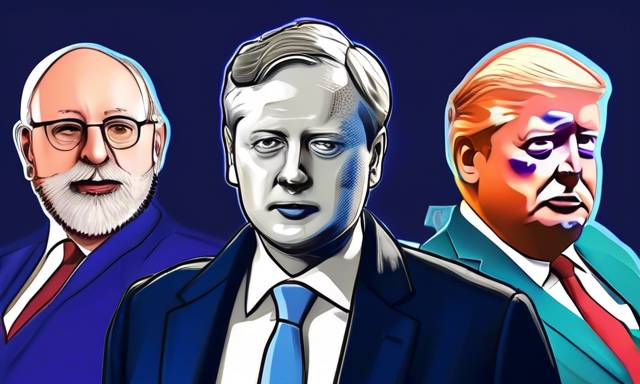So What’s the Deal with TD Bank’s Record-Breaking Fine and Its Impact on Crypto?
Hey friends! Let’s dive into something that’s shaking the crypto world a bit: TD Bank getting slapped with a massive $3.09 billion fine for some serious compliance failures linked to cryptocurrency. I mean, wow, that’s a hefty chunk of change! If you’re curious about what this means for the crypto market and your investment strategy, you’ve come to the right place.
Key Takeaways:
- TD Bank’s Big Penalty: The $3.09 billion fine is the largest ever imposed under the Bank Secrecy Act.
- Compliance Failure: Allegations include failing to report suspicious transactions related to a particular client heavily involved in crypto.
- Implications for Crypto Transactions: This raises red flags around how banks are dealing with digital assets.
- Broader Industry Impact: Increased scrutiny could lead to tighter regulations for all crypto transactions.
The Big Penalty
Alright, so why are we talking about TD Bank? The bank just pleaded guilty to some serious stuff under the Bank Secrecy Act and money laundering laws, which isn’t a great signal for anyone involved in financial institutions working with crypto. The fine consists of $1.8 billion from the DOJ and an additional $1.3 billion from FinCEN. Seriously, guys, that’s unprecedented. TD Bank will also be monitored for compliance over the next four years—meaning someone’s gonna be keeping a hawk-eye on them!
What Really Went Wrong?
Here’s the kicker: TD Bank didn’t monitor transactions properly for a client they called “Customer Group C.” This entity claimed they’d be dealing with less than a million bucks annually but processed over $1 billion instead! And a lot of that cash flow linked back to cryptocurrency. Sudden, explosive growth like that? Red flags everywhere!
What’s worse is that this customer had connections to high-risk areas like Colombia and China, which makes even more sense for why they caught the attention of the feds. Even when law enforcement flagged suspicious activities, TD Bank didn’t act promptly. They had some policies in place, but hey, we all know that rules are only as good as their enforcement, right?
Practical Tips for Potential Investors
-
Stay Informed: Always keep up with regulatory changes and the actions taken by traditional banks regarding cryptocurrencies. This fine is a big deal and could hint at future actions against other banks in the space.
-
Diversify Your Holdings: With the crypto market being unpredictable, never put all your eggs in one basket. Diversifying might just be your best bet against market volatility.
-
Understand Compliance Risks: If you’re engaging with traditional financial systems to cash out or funnel money into cryptocurrency, understand the compliance landscape. This TD Bank situation shows that the scrutiny is only going to increase.
-
Be Cautiously Optimistic: While this news might sound like doom and gloom, it can also underscore the importance of crypto compliance moving forward. When you see regulations tightening, it can mean that industries are maturing—potentially making your investments safer in the long run.
- Engage with Professionals: Consider consulting with financial advisors who have a good grasp of crypto markets and can help you navigate through these complex waters.
My Personal Insights: A Look Ahead
Now, here’s where I’m at with all this. As a young analyst, I get excited about the potential crypto has to revolutionize the financial landscape. But situations like these remind us not to get too overconfident. This TD Bank case could very well serve as the wake-up call that the industry needs about compliance and due diligence. It’s a reminder we all need—crypto has incredible potential, but it also carries inherent risks.
I’ve seen friends jumping headfirst into the market, sometimes without realizing how much these regulatory landscapes matter. It can be tempting to see only gains, but it’s like that old saying—what goes up must come down. So stay smart, stay informed, and don’t forget about the rules of the game!
Closing Thoughts: What Does This Mean for Crypto’s Future?
So, wrapping it all up—what do we take away from this? Is this fine a signal of a crackdown that could shake the crypto space, or can we see it as a pathway towards a more regulated and, therefore, safer environment for our investments? That’s something to ponder. Personally, I lean towards cautious optimism, hoping that regulations can bring much-needed stability.
What do you think—are regulations a good thing in crypto, or do they kill the innovation vibe? Would love to hear your thoughts!





 By
By
 By
By

 By
By
